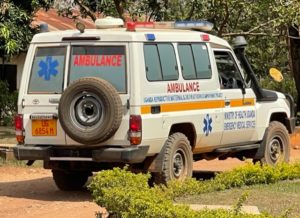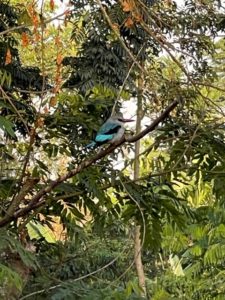Happy Monday from Kiwoko! It was back to work today and back to pediatrics for me. I’m slowly switching my thinking away from viral upper respiratory infections and bronchiolitis to tuberculosis, HIV associated pneumonia, malaria, etc. To be sure the former still occur here but in much less frequency than the latter and, as a clinician, your mindset here is to assume the worst and prove yourself wrong.
We finished rounds early so I walked around the hospital to see the other services available. I have been pestering lab to see a slide with malaria but they are so busy it is hard to take time to show me. I have the head lab tech’s phone number now though so I am determined!
I landed in physical therapy with a local therapist and two “physios” from the UK. Physical therapy is such a needed service in these low resource communities because as medical services have improved vastly, including surgery and life saving procedures, recovery and rehab after initial management is lacking. People can be very debilitated after accident injuries which tend to be common due to motorcycle/vehicle crashes and risky work environments many exist in every day. The physios also tell me they have been seeing many people, especially women, with repetitive use injuries from things like washing laundry by hand and picking up babies. The interventions the physios employ are simple and easily translated. They have adapted to using common household items in this area or things found in nature to simulate Therabands, weights, etc. Patients are typically told to practice 3 exercises twice daily (before and after work, the most time people typically can devote) and to return for follow up in four weeks compared to the twice or three times a week follow up in the US. This speaks to the sense of personal responsibility that characterizes people of communities like this- something I am coming to respect immensely.
Lugandan word of the day: akakookoolo (noun, mask, a facial covering- although everyone here just says “mask” since COVID began)
Medical learning point of the day: Severe malaria is treated by IV artesunate for 3 days followed by (if Plasmodium falciparum) 3 days of Coartem tablets (artemether and lumefantrine) which must be taken with a fatty meal as lumefantrine is absorbed best with fat.


